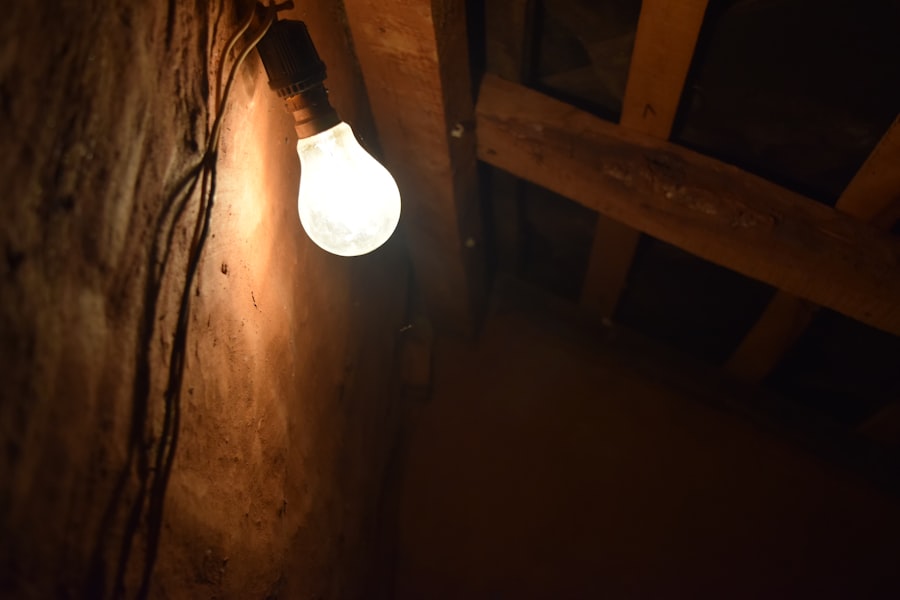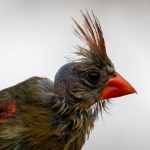Raising backyard chickens requires understanding their specific needs to ensure their health and well-being. Chickens are sensitive to temperature changes and require a comfortable, safe environment to thrive. They are particularly susceptible to cold temperatures and need adequate shelter, insulation, and warmth during colder months.
Proper ventilation, bedding, and nutritious food and water are also essential for their overall health. Chickens are most comfortable in temperatures ranging from 65-75 degrees Fahrenheit (18-24 degrees Celsius). When temperatures drop below this range, chickens can experience cold stress, leading to discomfort, decreased egg production, health issues, and potentially death.
To protect chickens from cold weather, it is crucial to provide a warm, insulated shelter. This shelter should have proper ventilation to prevent moisture buildup while maintaining warmth. In addition to shelter, chickens require appropriate bedding material to help insulate them from cold surfaces and absorb moisture.
Providing warm food and water is also important, as consuming cold resources can lower a chicken’s body temperature. By addressing these specific needs, backyard chicken owners can create a comfortable and safe environment for their flock to thrive, even during colder seasons.
Table of Contents
- 1 Providing Adequate Shelter and Insulation
- 2 Using Heat Lamps and Heated Pads
- 3 Ensuring Proper Ventilation
- 4 Adding Bedding and Nesting Material
- 5 Offering Warm and Nutritious Food and Water
- 6 Monitoring and Adjusting for Temperature Changes
- 7 FAQs
- 7.1 What are some ways to keep backyard chickens warm in the winter?
- 7.2 What temperature is too cold for chickens?
- 7.3 How can I insulate my chicken coop to keep it warm?
- 7.4 Is it safe to use heat lamps or heated pads for chickens?
- 7.5 What should I feed my chickens to help keep them warm in the winter?
Key Takeaways
- Backyard chickens have specific needs for shelter, insulation, ventilation, bedding, and food and water to thrive.
- Adequate shelter and insulation are essential for protecting chickens from extreme temperatures and weather conditions.
- Heat lamps and heated pads can be used to provide additional warmth during cold weather, but should be used with caution to prevent fires and burns.
- Proper ventilation is crucial for maintaining air quality and preventing moisture buildup in the coop.
- Adding bedding and nesting material helps to keep chickens warm and comfortable, and provides a place for them to lay eggs.
Providing Adequate Shelter and Insulation
Insulation is Key
Insulating the walls, ceiling, and floor of the coop can help retain heat and keep the chickens warm. Additionally, ensuring that the coop is free from drafts and leaks is essential for maintaining a comfortable environment for the chickens. By providing a well-insulated and draft-free shelter, you can help protect your backyard chickens from the cold and ensure their overall well-being.
A Spacious and Well-Designed Coop
The coop should be spacious enough to accommodate the number of chickens you have and provide them with enough room to move around comfortably. It’s important to consider the layout of the coop, including the placement of windows and doors to maximize sunlight exposure and minimize drafts. Additionally, providing roosting bars and nesting boxes can help keep the chickens warm and comfortable during the night.
Creating a Comfortable Environment
By providing a well-constructed and spacious shelter, you can create a comfortable and safe environment for your backyard chickens to thrive.
Using Heat Lamps and Heated Pads
During the colder months, using heat lamps and heated pads can help provide additional warmth for backyard chickens. Heat lamps can be installed in the coop to provide supplemental heat, especially during extremely cold temperatures. It’s important to position the heat lamps at a safe distance from the chickens to prevent any accidents or injuries.
Additionally, using heated pads or mats under the bedding can help keep the coop floor warm and provide a comfortable surface for the chickens to rest on. By using heat lamps and heated pads, you can help ensure that your backyard chickens stay warm and comfortable during the colder months. When using heat lamps and heated pads, it’s important to monitor them regularly to ensure they are functioning properly and safely.
Inspect the cords, bulbs, and heating elements for any signs of wear or damage, and replace them as needed. Additionally, it’s crucial to follow safety guidelines when using heat lamps and heated pads to prevent any fire hazards or injuries. By using these supplemental heating sources responsibly, you can help provide additional warmth for your backyard chickens without compromising their safety.
Ensuring Proper Ventilation
Proper ventilation is essential for maintaining a healthy environment for backyard chickens, especially during the colder months. Good ventilation helps remove excess moisture, ammonia, and airborne pathogens from the coop, which can contribute to respiratory issues and other health problems in chickens. It’s important to provide adequate ventilation in the coop without creating drafts that can make the chickens uncomfortable.
Installing vents or windows that can be opened and closed as needed can help regulate airflow and maintain a comfortable environment for the chickens. By ensuring proper ventilation, you can help create a healthy and safe environment for your backyard chickens to thrive. In addition to providing adequate ventilation in the coop, it’s important to ensure that the ventilation openings are protected from predators and pests.
Installing wire mesh or hardware cloth over vents and windows can help prevent unwanted intruders from entering the coop while still allowing for proper airflow. Additionally, regularly cleaning and maintaining the ventilation openings can help ensure that they remain free from debris and obstructions. By ensuring proper ventilation and protecting the openings from predators, you can create a healthy and safe environment for your backyard chickens.
Adding Bedding and Nesting Material
Adding bedding and nesting material is essential for keeping backyard chickens warm and comfortable during the colder months. Bedding such as straw, wood shavings, or shredded paper can help insulate the coop floor and provide a comfortable surface for the chickens to walk on. Additionally, providing nesting material such as straw or shredded paper in the nesting boxes can help keep the eggs warm and protected.
By adding bedding and nesting material, you can help create a warm and comfortable environment for your backyard chickens to thrive. When adding bedding and nesting material, it’s important to regularly clean and replace it as needed to maintain a clean and healthy environment for the chickens. Wet or soiled bedding should be removed promptly to prevent mold growth and ammonia buildup, which can be harmful to the chickens’ respiratory health.
Additionally, providing fresh bedding and nesting material regularly can help keep the coop clean and comfortable for the chickens. By adding and maintaining bedding and nesting material, you can help ensure that your backyard chickens have a warm and comfortable environment to live in.
Offering Warm and Nutritious Food and Water

Nutritious Food for a Healthy Flock
Offering warm and nutritious food is essential for keeping backyard chickens healthy during the colder months. Chickens require a balanced diet that provides them with essential nutrients to maintain their health and energy levels. During cold weather, providing warm food such as oatmeal or scrambled eggs can help keep the chickens warm from the inside out.
High-Quality Feed for Optimal Health
Additionally, offering high-quality feed that is rich in protein, vitamins, and minerals can help support their overall health during the colder months. By offering warm and nutritious food, you can help ensure that your backyard chickens stay healthy and strong.
Access to Clean and Unfrozen Water
In addition to food, providing access to clean and unfrozen water is crucial for keeping backyard chickens hydrated during the colder months. Installing heated waterers or using heated pads under water containers can help prevent water from freezing in cold temperatures. It’s important to regularly check water containers for ice buildup and refill them with fresh water as needed.
By offering warm and nutritious food as well as access to clean water, you can help ensure that your backyard chickens have the essential resources they need to stay healthy during the colder months.
Monitoring and Adjusting for Temperature Changes
Monitoring temperature changes in the coop is essential for ensuring that backyard chickens stay warm and comfortable during fluctuating weather conditions. Using a thermometer inside the coop can help you track temperature changes and make adjustments as needed. If temperatures drop significantly, you may need to provide additional heat sources such as heat lamps or heated pads to keep the chickens warm.
Conversely, if temperatures rise unexpectedly, you may need to adjust ventilation openings to prevent overheating in the coop. By monitoring temperature changes regularly and making adjustments as needed, you can help ensure that your backyard chickens stay comfortable in any weather conditions. In addition to monitoring temperature changes, it’s important to observe your chickens’ behavior for signs of discomfort or stress.
If you notice that they are huddling together or showing signs of lethargy, it may indicate that they are feeling cold. In this case, providing additional warmth or adjusting ventilation may be necessary to keep them comfortable. Conversely, if you notice signs of panting or restlessness, it may indicate that they are too hot, in which case adjusting ventilation or providing shade may be necessary.
By monitoring your chickens’ behavior and making adjustments as needed, you can help ensure that they stay comfortable and healthy in any temperature changes. In conclusion, understanding the specific needs of backyard chickens is essential for creating a comfortable and safe environment for them to thrive. Providing adequate shelter and insulation, using heat lamps and heated pads, ensuring proper ventilation, adding bedding and nesting material, offering warm and nutritious food and water, as well as monitoring temperature changes are all crucial aspects of caring for backyard chickens during the colder months.
By addressing these needs effectively, you can help ensure that your backyard chickens stay healthy, comfortable, and happy throughout the year.
If you’re interested in keeping backyard chickens warm, you may also want to learn about how many eggs geese lay. Check out this article to find out more about geese breeding and egg production. Understanding the egg-laying habits of geese can provide valuable insights into the care and management of poultry in your backyard.
FAQs
What are some ways to keep backyard chickens warm in the winter?
Some ways to keep backyard chickens warm in the winter include providing a well-insulated coop, using heat lamps or heated pads, and ensuring good ventilation while avoiding drafts.
What temperature is too cold for chickens?
Chickens can tolerate cold temperatures quite well, but they may start to experience discomfort and health issues if the temperature drops below 0°F (-18°C).
How can I insulate my chicken coop to keep it warm?
You can insulate your chicken coop by using materials such as straw, hay, or wood shavings on the floor, adding insulation to the walls and ceiling, and sealing any drafts or gaps.
Is it safe to use heat lamps or heated pads for chickens?
Heat lamps and heated pads can be used safely for chickens, but it’s important to follow safety guidelines to prevent fires and ensure that the chickens cannot come into direct contact with the heat source.
What should I feed my chickens to help keep them warm in the winter?
Feeding your chickens a balanced diet that includes plenty of protein and energy-rich foods can help them generate body heat and stay warm in the winter. Additionally, providing warm water can help prevent dehydration and keep them warm.
Meet Walter, the feathered-friend fanatic of Florida! Nestled in the sunshine state, Walter struts through life with his feathered companions, clucking his way to happiness. With a coop that’s fancier than a five-star hotel, he’s the Don Juan of the chicken world. When he’s not teaching his hens to do the cha-cha, you’ll find him in a heated debate with his prized rooster, Sir Clucks-a-Lot. Walter’s poultry passion is no yolk; he’s the sunny-side-up guy you never knew you needed in your flock of friends!







